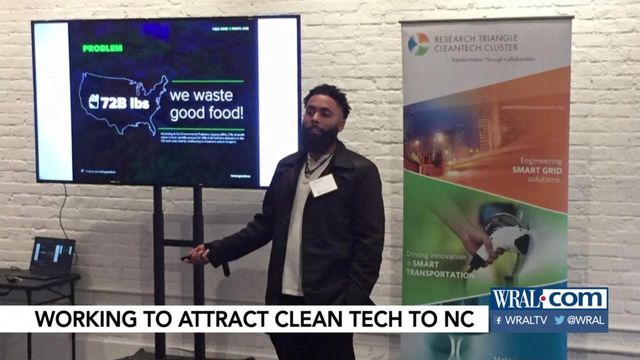North Carolina trying to attract more 'cleantech' companies
A unique partnership in North Carolina is trying to attract "cleantech" companies to the area.
Posted — UpdatedKnowing what "cleantech" or "clean technology" is is the first step to understanding why it could be important to North Carolina
"Essentially it's any technology or process that improves the quality of people's lives and reduces the consumption of energy," said Susan Sanford, who is the executive director of the Research Triangle Cleantech Cluster.
And for those who focus on the bottom line, these companies can increase profit margins for cities and towns that use the technology.
"This industry solves the world's most critical problems," said Sanford.
North Carolina would like to attract more of these kinds of companies, especially to rural communities, and that desire has resulted in a unique partnership. The Joules Accelerator in Charlotte has teamed up with the Research Triangle Cleantech Cluster to attract cleantech businesses to the two metropolitan areas and the space in between. It's something they are calling the Cleantech Corridor.
"The Joules Accelerator goes out and tries to identify cleantech early-stage companies that can come back to our region between Charlotte and Raleigh and hopefully engage the community," said Bob Irvin, executive director of the Joules Accelerator.
"A lot of it is happening out in California, Texas and New York, so we kind of have to bring it here," Irvin said.
So they did. Eight startups from around the country were selected for this year's program. One is based in Pittsburgh and has figured out a way to use cell phones to find potholes.
Their customers are usually cities, which can then save taxpayer money by using technology to be proactive in road maintenance.
"A lot of cities have these sustainability goals and food waste and food diversion is a big part of that conversation," said Zebedee McLaurin, the logistics director for Goodr.
These are startups that can benefit towns of all sizes but would usually have a hard time making connections outside of big cities.
"I think we wanted to expand the diversity, expand the region because a lot of these little small towns don't have access to the companies we have," Irvin said.
Related Topics
• Credits
Copyright 2024 by Capitol Broadcasting Company. All rights reserved. This material may not be published, broadcast, rewritten or redistributed.






